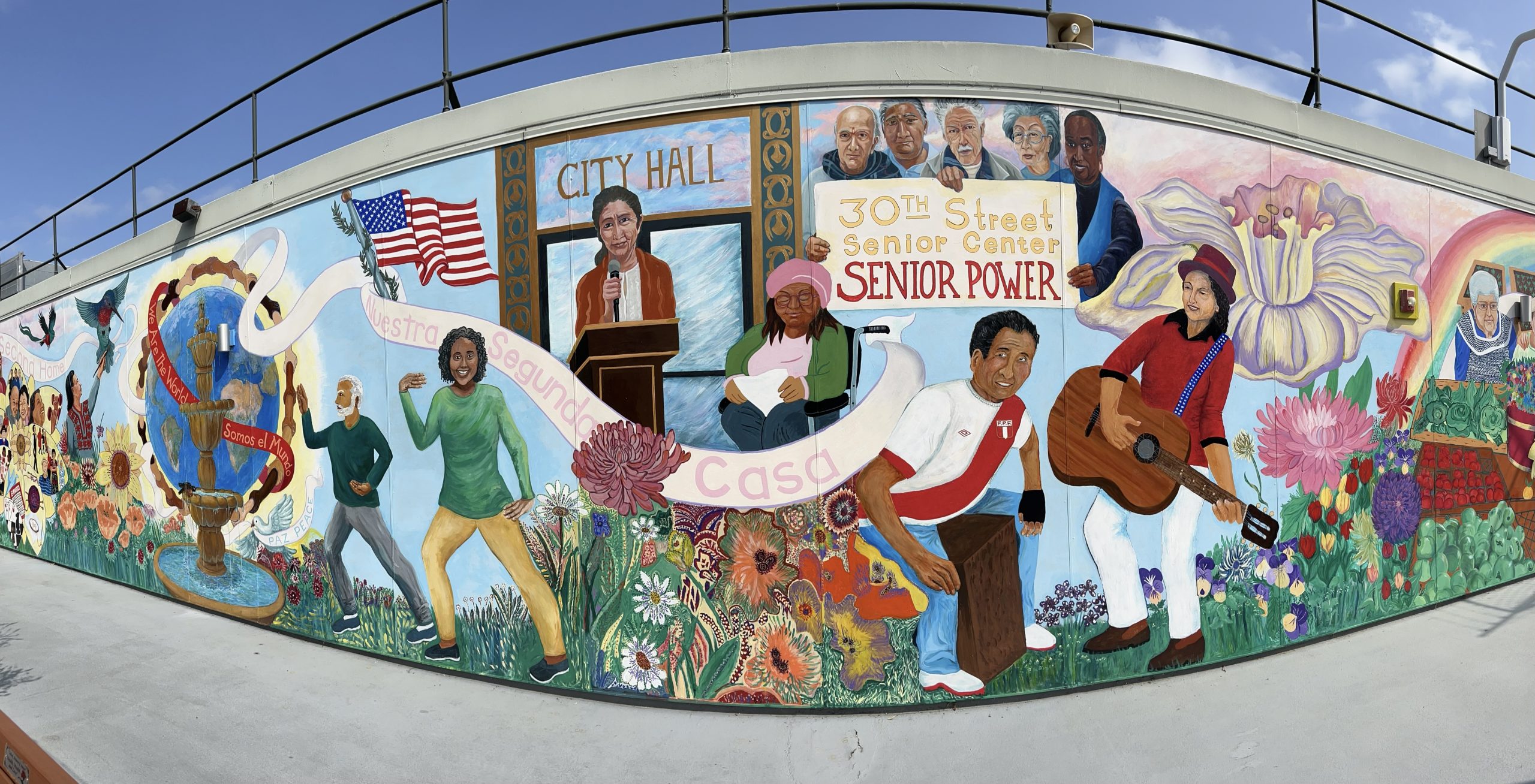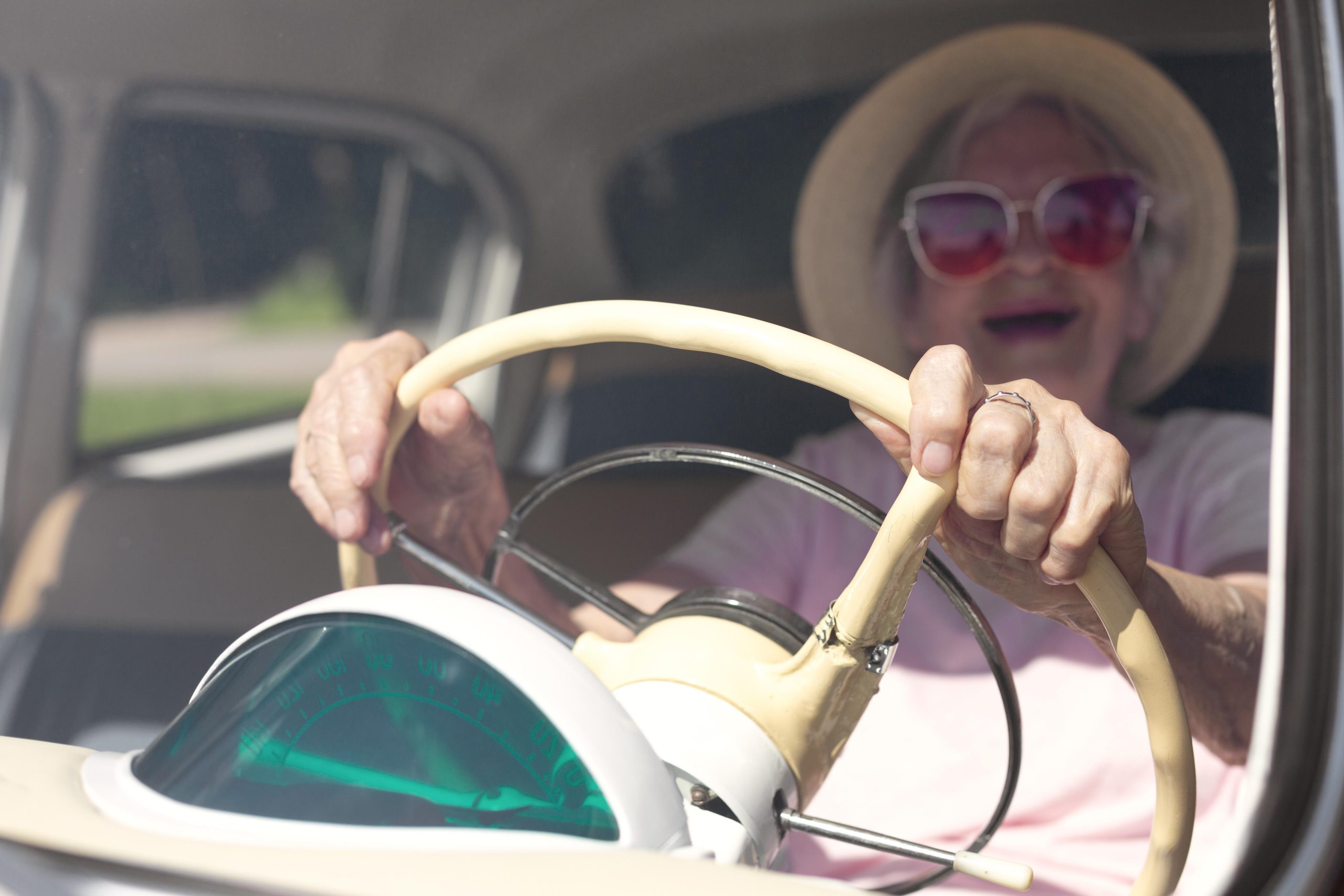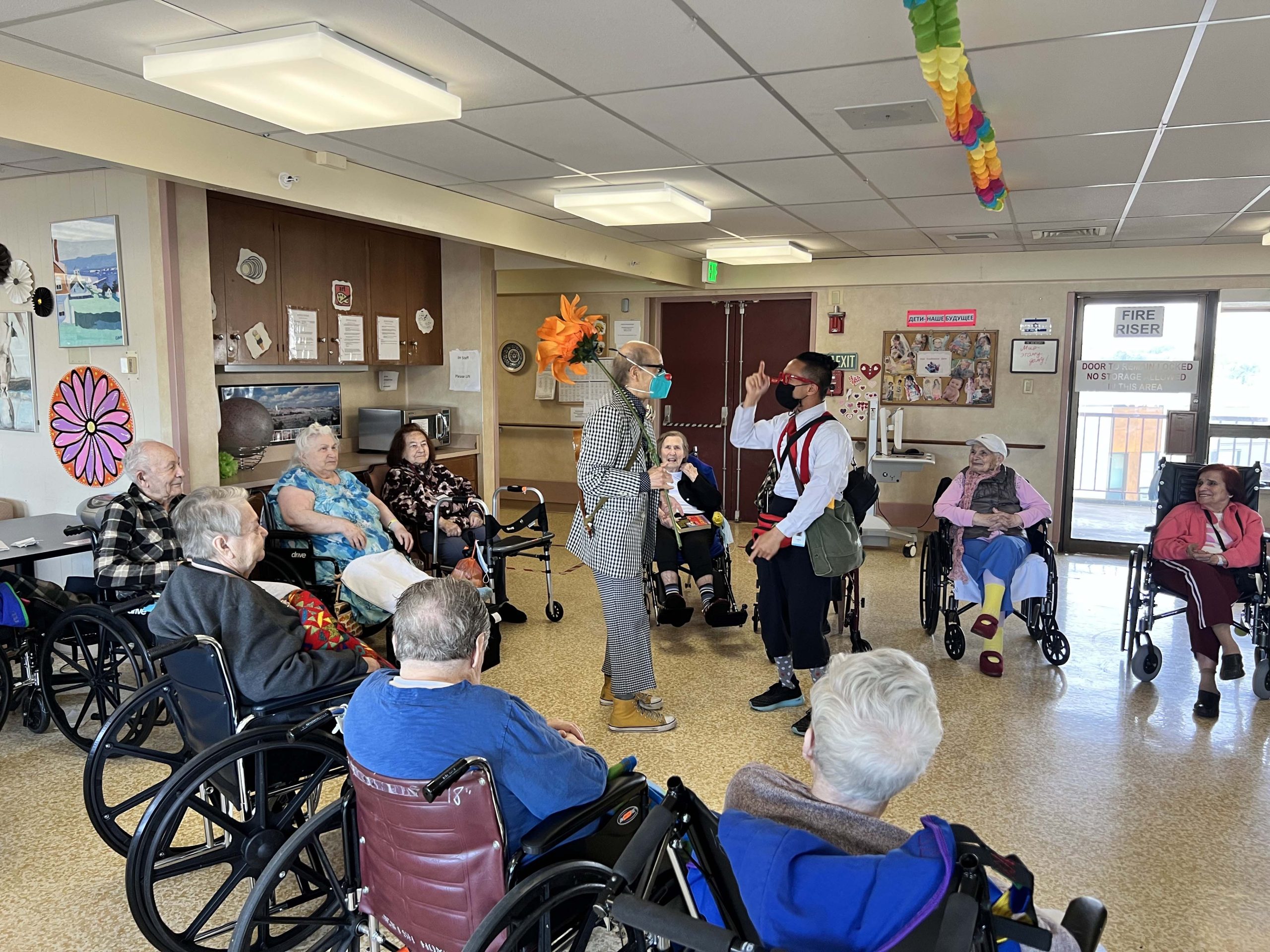Get testing, counseling, training then go shopping at Lighthouse’s store for low- and hi-tech vision aids
I kept looking for the brightness button on my TV to lighten up scenes that seemed to be filmed in the dead of night. Unfortunately, there’s no “time for cataracts surgery” pop-up message on the screen, even on the smartest TV.
Apparently I’m not alone. About 10 percent of adult Americans 18 and older (some 26.9 million) reported they either “have trouble” seeing, even when wearing glasses or contact lenses, or that they are blind, unable to see at all, according to the 2017 National Health Interview Survey. Of those,7.8 million are 65 years and many report experiencing significant vision loss.
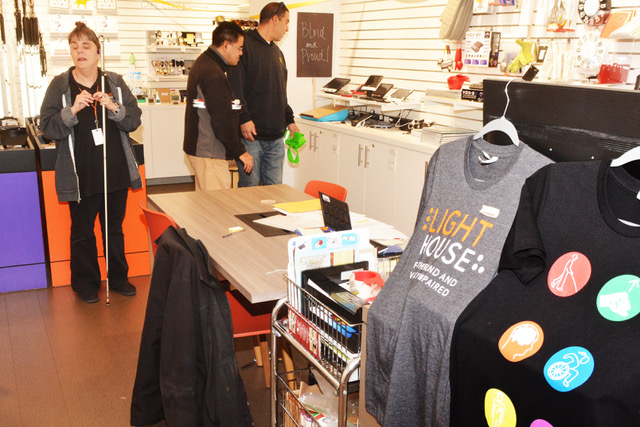
Fortunately, there are a number of organizations in San Francisco that exist to help people with “low vision” to “no vision.” The most well-known is Lighthouse for the Blind. Founded in 1902, it promotes independence, equality and self-reliance by offering assistance for all gradations of visual impairment, from mild myopia to difficulty seeing shapes and colors to the inability to see light, the definition of blindness.
Services include counseling, vision testing and training on accessible technology. Workshops are offered on everything from learning how to read a tactile map or hiking around the Bay Area to applying make-up and cooking the perfect omelet.
Staff guides clients to the appropriate trainer and program. One of the most interesting rooms in the Lighthouse’s new quarters on Market Street, is a shop called Adaptations. It’s full of low- and high-tech solutions for visual impairment.
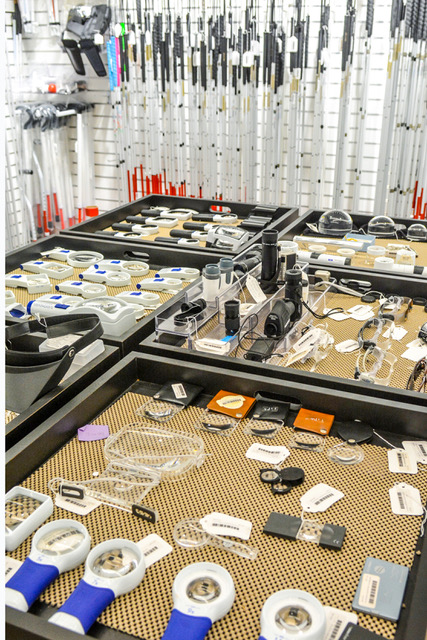
There are magnifiers of every power and size. Writing supplies include templates for filling out checks and letters, darkly lined paper, bold pens that don’t smell of chemicals and don’t bleed through paper.
You can find keyboards with larger keys, along with digital readers that magnify print to be viewed on a computer monitor. There are special lamps, canes and sunglasses that fit over your regular ones.
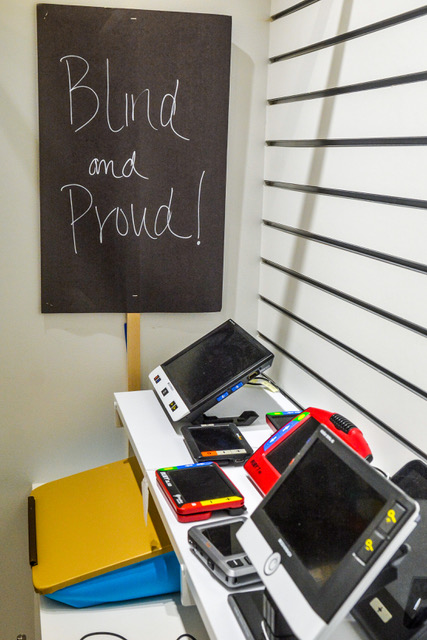
My favorite devices are the talking objects such as clocks, alarms, oven thermometers and bathroom scales.
Other cooking aids include measuring devices and a cutting board that is black on one side to make it easier to cut up light vegetables like onions and potatoes; a thermometer to check the temperature of hot drinks instead of burning your tongue.
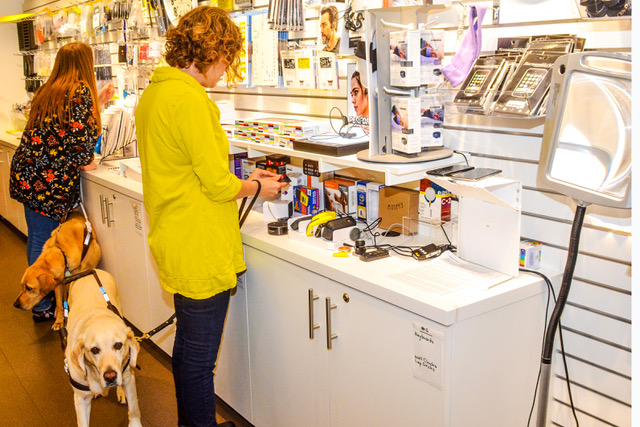
The most popular items are magnifying lenses, glasses and canes, said Adaptations sales associate Starrly Winchester.
Vision and hearing loss can lead to isolation and a more rapid decline in general health and well-being. One of the many programs of the San Francisco Community Living Campaign, a nonprofit advocating for seniors and adults with disabilities, provides training and access to computer hardware and adaptive technologies in more than 50 locations across the city.
Computer training includes an introduction to social media to help seniors stay connected to their communities as well as health and supportive services.
For people with vision problems, using social media depends to a large part on online sites making their content accessible. It’s also the law. Social media falls under Section 508 of The Rehabilitation Act of 1973 for government agencies, and even non-government entities need to make their social media comply with ADA standards of equal accessibility.
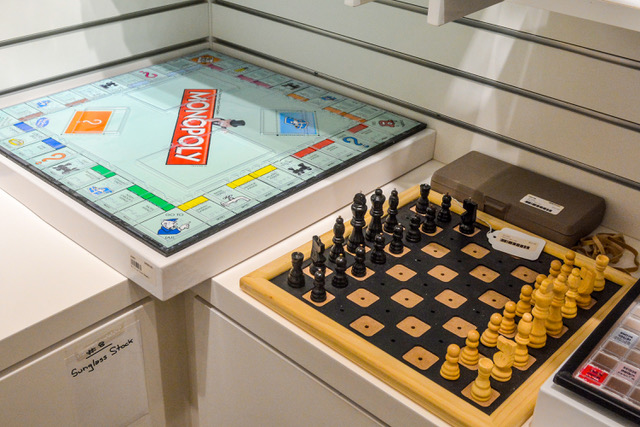
Sherri Sawyer, CLC’s vision and hearing loss coordinator, visits community groups to let people know what vision support is available. CLC’s latest effort is a brochure and a presentation on how to prepare seniors with vision and hearing loss for an emergency.
In addition to general advice like filling a go-bag to be grabbed in an emergency, they also provide an information sheet folded and kept in a plastic bag on the refrigerator that contains critical health information for paramedics and other health professionals.
“This way, medical contact numbers, health insurance card number, current health conditions and other vital details are all contained on one sheet of paper in an accessible spot,” she said.
Other vision help resources:
The San Francisco Public Library Talking Books and Braille Center offers a wealth of programs and assistive devices for people who are blind or have low vision. Devices range from a simple magnifier to a software program that scans printed material and reads it back to the user. The center also has a Braille reader and printer, descriptive videos for home or library use, and downloadable audiobooks and magazines.
The talking books program lends free audio books, periodicals and playback equipment, and free return mail service to the library.Access Services Librarian Marti Goddard says the library has immediate access to 8,000-9,000 books and magazines and can access another 53,000 titles though interlibrary loan. The library also sponsors a Talking Book Club and runs free technology workshops through the learning studio on the fifth floor.
The Department of Rehabilitation’s Blind Field Services program offers counseling and information on adjustment to vision changes, and provides specialized and comprehensive vocational rehabilitation services to Californians who are blind or visually impaired. It also fields questions from employers about accommodating vision impaired employees, as well as incentives for employers who hire people with disabilities.
The department’s Older Individuals who are Blind Program provides services to visually impaired individuals, age 55 and older, to assist them to live independently in California.
The Mobile Eye Service (Eye Van), a collaboration of San Francisco General Hospital, The University of California-San Francisco and the San Francisco Community Health Network provides free vision testing and counseling for diabetes patients in clinics around the city.
St. Paulus Church, at 1541 Polk St., offers free eye exams, frames and lenses on the first Tuesday of every month from 10 a.m. to 4 p.m. No appointment necessary.




